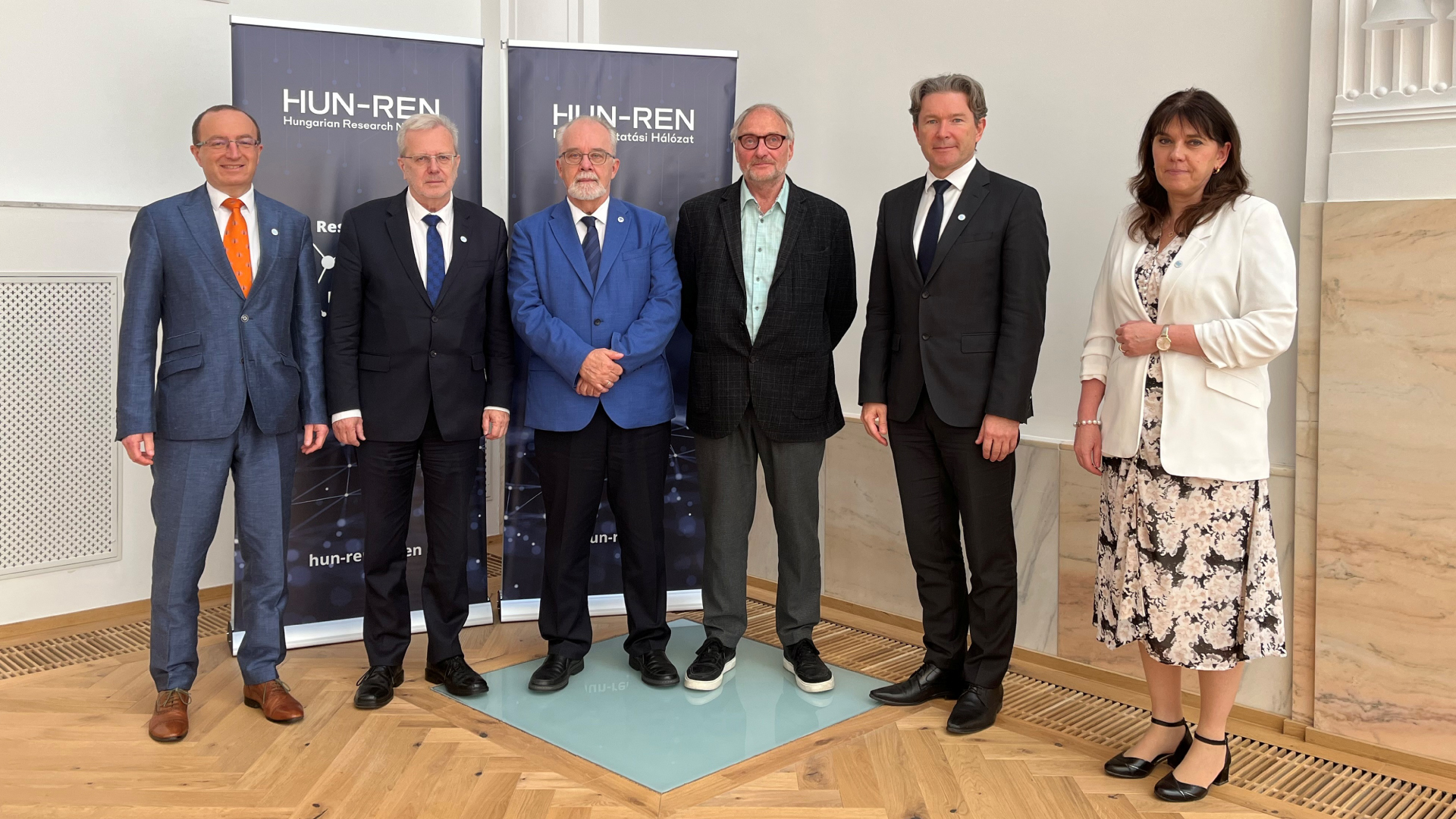HUN-REN: Exceptional Knowledge and National Value
We have discovered new paths and many enthusiastic young researchers, stated Professor Emeritus Alexander J.B. Zehnder, Chairman of the HUN-REN Advisory Board, at the IV. Strategic Workshop of the Hungarian Research Network. He also highlighted that by the end of the evaluation process, the network's research sites will be validated according to international standards.
At the event held on June 26 at the Research Center for Humanities, discussions focused on the strategic future of HUN-REN, with several international experts and researchers presenting their insights. Meanwhile, the network's researchers participated in workshops to explore and develop solutions for the more effective support and strengthening of scientific activities.
Regarding the professional audit and evaluation of the HUN-REN Hungarian Research Network, Alexander J.B. Zehnder stated that this assessment is unique in Hungary. He emphasized that the HUN-REN research institutes embody national values with exceptional knowledge. "During the evaluations, we sought new paths and found numerous 'gold nuggets' awaiting processing at the research sites. These nuggets just need to be refined to become visible," he noted. He also pointed out the discovery of many enthusiastic young researchers who, despite not yet earning optimal salaries, are deeply dedicated and passionate about their work. Their commitment and love for science make the entire endeavor exciting and promising.

The internationally renowned researcher gained insights during the audits, noting that the research sites achieved exceptional results despite limited financial resources. In his presentation, he mentioned encountering research topics that are unique on an international scale, as well as those addressing specifically national issues. He believes the latter are also important for Hungarian identity, as Hungarian is spoken as an official language only in the Carpathian Basin. The professor pointed out that some research infrastructures definitely need improvement, but there are also researchers working under world-class conditions.
Professor Zehnder also made recommendations for the research institutes. He sees opportunities for progress in intensive collaboration within the HUN-REN network, quality research, support and encouragement of career paths, joining international networks, attracting talent, and developing cohesion. He believes that HUN-REN Headquarters should provide a "boost" in these areas.
Regarding the quality criteria for the institutes, Professor Zehnder mentioned that there is still much work to be done by researchers in areas such as publications in prestigious journals, recognized international and domestic scientific activities (including presenting at conferences, holding committee memberships, and expert roles), scientific training, education, and media appearances. "If you are never invited to give a lecture anywhere, then you are not known. However, if you are an invited speaker at major conferences, it shows that you and your institution are known. It's that simple," emphasized the Chairman of the HUN-REN Advisory Board. Professor Zehnder also noted that addressing researchers' salaries is necessary and part of strengthening the entire network.
The Swiss-born researcher added that with young, talented, and enthusiastic researchers, a long path can be traveled, as they can become among the best not only domestically but also regionally and internationally. Regarding the operation of the institutes, he mentioned that the research sites are also expected to provide suggestions for measuring their own performance. The goal is to become internationally validated and recognized in their respective research fields, as there can be no compromise on quality. "To achieve all this, a strategy must be developed, and excellence must be supported and promoted," added Alexander J.B. Zehnder, Chairman of the HUN-REN Advisory Board.

